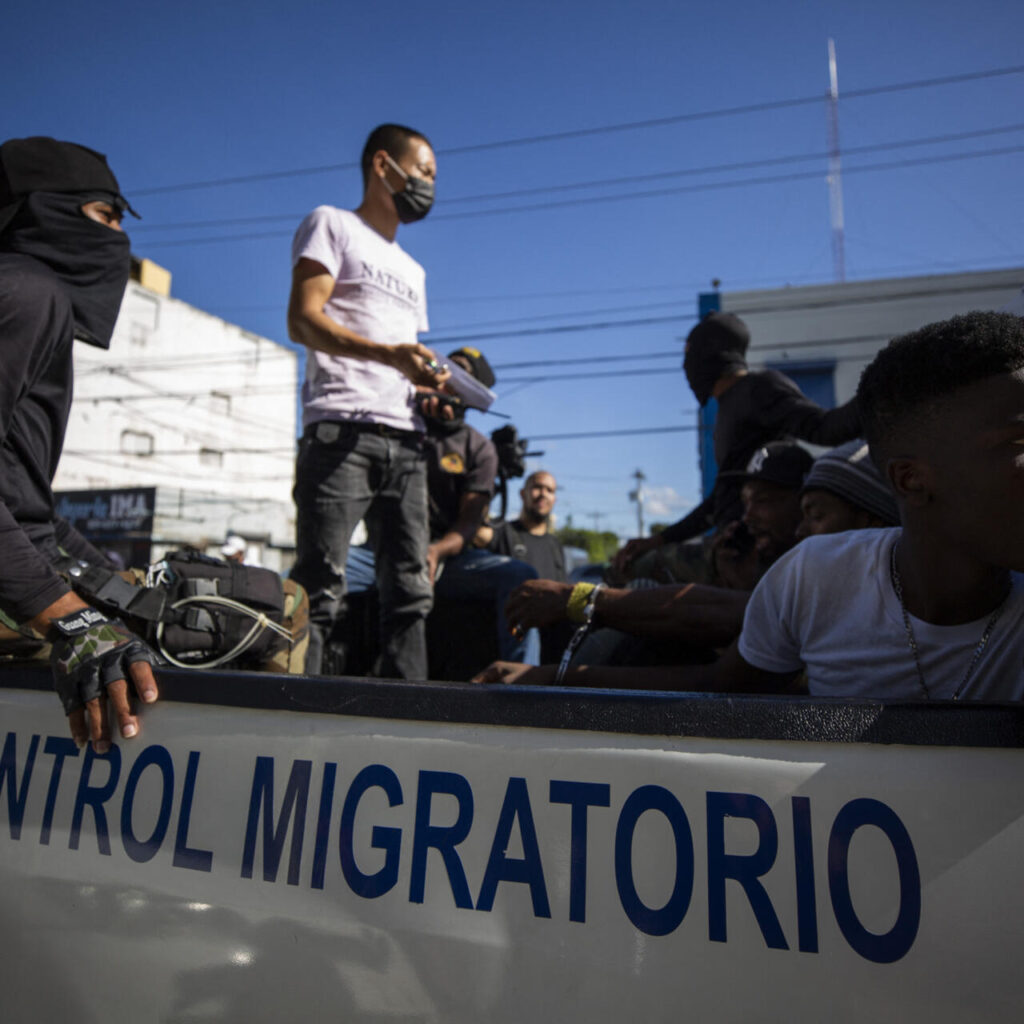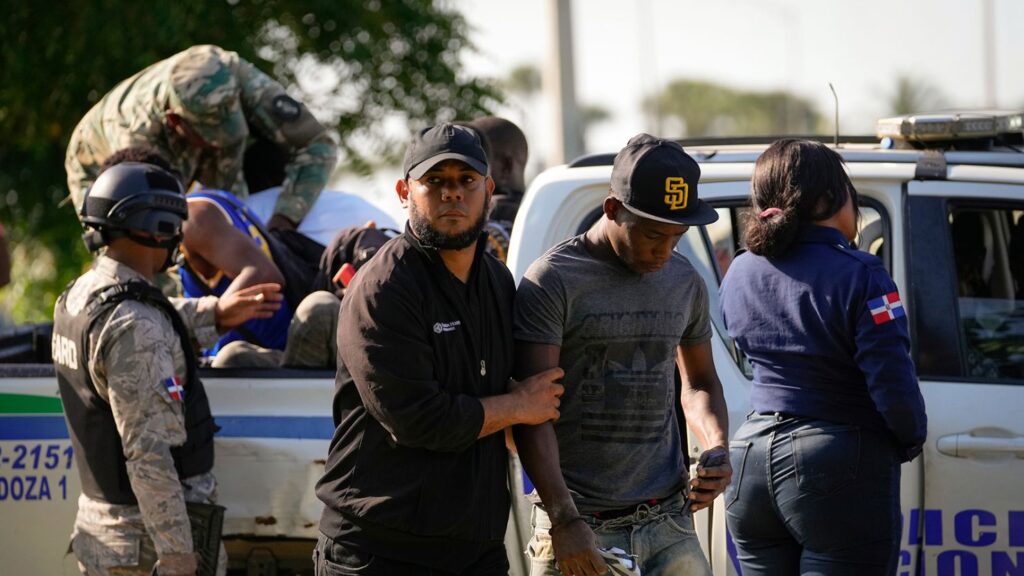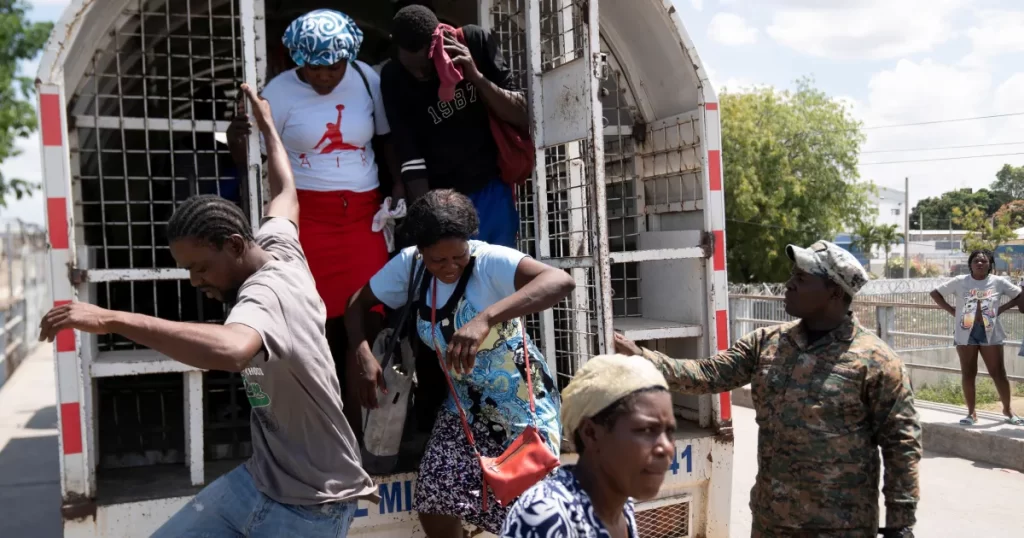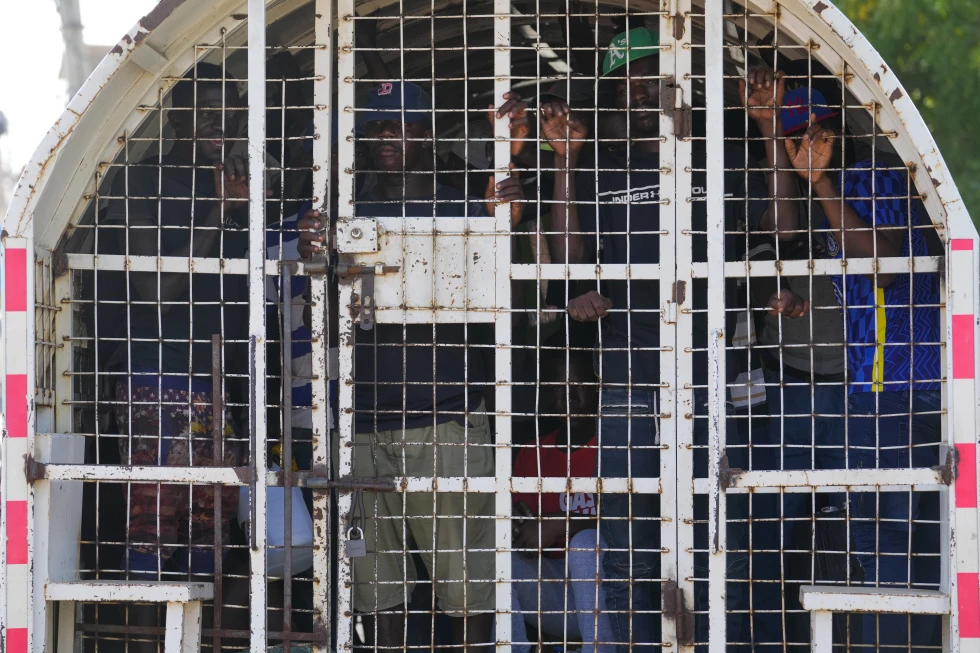The Dominican Republic has reported the deportation or repatriation of nearly 11,000 Haitians in the past week, fulfilling its pledge to expel up to 10,000 Haitians weekly. This mass deportation campaign, the largest in recent history, comes as neighboring Haiti grapples with escalating gang violence and severe poverty.

The Dominican government announced the deportation figures on Tuesday, citing an “excess” of immigrants as the reason for the aggressive action. This move has further strained relations between the two countries sharing the island of Hispaniola.
In response to the deportations, Haitian officials have requested an emergency meeting at the Organization of American States (OAS). Gandy Thomas, Haiti’s permanent representative to the OAS, characterized the deportations as “a strategy of ethnic cleansing” and “a discriminatory campaign against Haitians due to their nationality and color of their skin.”

Thomas called for dialogue and a “respectful solution,” warning that the deportations would “worsen the fragility of our infrastructure while the deportees will arrive with no support, no resources and no ties to their community.”
Dominican Foreign Minister Roberto Álvarez defended his country’s actions, stating that Haiti’s crisis is disproportionately affecting the Dominican Republic. He claimed that migrants are overwhelming schools, clinics, and hospitals.
The mass deportations have led to an increase in abandoned children across the Dominican Republic, according to William Charpentier, coordinator for the Dominican-based National Coalition for Migrations and Refugees. He reported instances of parents being deported while their children are left behind, even while in school.

Charpentier characterized the deportations as “a type of persecution against Black people, against everything they presume to be Haitian.” He also alleged that even individuals with legal documents are being detained and deported, a practice that activists claim has occurred in previous years.
Allegations of extortion have surged amid the deportations. Ocicle Batista, a 45-year-old Haitian migrant selling avocados in Santo Domingo, accused soldiers of demanding $230 to $330 from migrants to avoid deportation, “even when they have their papers in hand.”
Luis Rafael Lee Ballester, the Dominican Republic’s migration director, asserted that human rights are being respected and that proportional force is used during arrests. He stated that those with documents were detained because they did not have “reliable identification” to justify their presence in the country.

From October 1-7, the Dominican government reported that 7,591 people were deported and 3,323 repatriated, all of whom were identified as Haitian.
The situation has prompted urgent meetings among Haitian officials, who have established a working group to handle the influx of migrants and their needs. Haitian Prime Minister Garry Conille condemned the deportations on social media, calling them “a violation of the fundamental principles of human dignity.”
As the crisis unfolds, both countries have called for dialogue. However, the Dominican Republic has made it clear that it does not intend to halt deportations, despite international concerns and the humanitarian implications for Haiti, a country already struggling with multiple crises.



